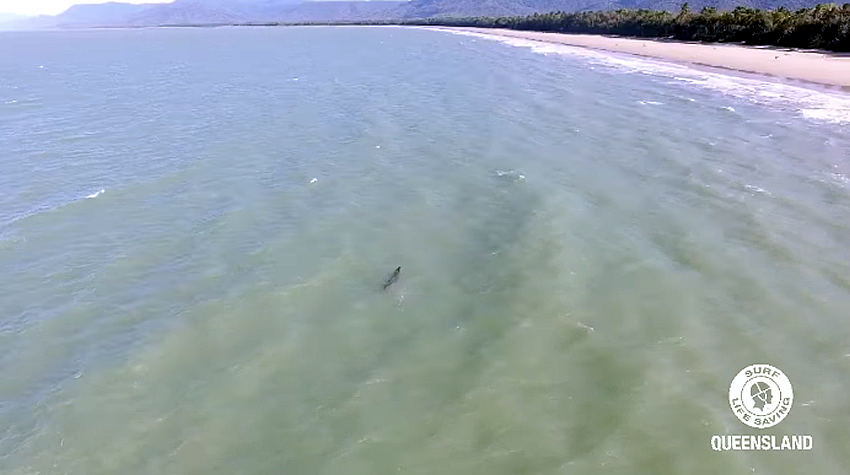Port Douglas Surf Life Saving Club gets surveillance upgrade
BEACH SAFETY

The Port Douglas Surf Life Saving Club is now home to the latest in shark and crocodile surveillance technology.
Port Douglas is one of four club locations in Far North Queensland to receive a drone to keep an eye on people and creatures in the water.
Cairns, Townsville, and Mackay will also have drones to keep an eye on the water.
About 15 Lifeguards and volunteer surf lifesavers from all four locations will undertake drone pilot training to assist in the delivery of this additional surveillance.
Surf Life Saving Queensland Lifesaving Operations Coordinator Jason Argent said the pilots were being trained to operate either sub-2kg or sub-7kg drones.
“Four drones are now located across Port Douglas, Cairns, Townsville and Mackay, thanks to the Westpac Lifesaver Rescue Drone program,” he said.
“These high-tech devices help our patrols monitor marine life along the coast, including crocodiles and sharks.”
“The drones assist us to identify and track crocodiles on land and in water, and the potential benefits of that are huge.
“It allows us to be a lot more proactive in the manner we go about protecting swimmers, monitoring the water for marine life, and closing a beach if and when we see a crocodile nearby.”
Four Mile Beach in Port Douglas was closed for an afternoon last month following the sighting of a crocodile which was monitored by a Westpac Lifesaver Rescue Drone.
Mr Argent said drones provided a different perspective and viewpoint to surveillance activity, further boosting the level of protection offered by patrols.
“It is vital that our beachgoers continue to swim between the red and yellow flags as this continues to be the safest place to enter the water,” he said.
“Not only will our lifeguards and lifesavers on the beach be able to see you, but our ‘eyes in the sky’ can further ensure your protection. This week’s training will enable more patrol members with the ability to use drone technology.
“If and when a marine creature is spotted, we close the beach and alert you when it is safe to re-enter the water. We just want everyone to enjoy our beaches safely, and our drones are helping to achieve this.”
If you spot a crocodile, report it immediately to CrocWatch on 1300 130 372.
Join the conversation
Give a THUMB UP or THUMB DOWN on what we've covered OR place a COMMENT below.
Got a great news tip or video? We'd love to see it.
Send news tips to editor@newsport.com.au
* Readers are encouraged to use their full details below to ensure comment legitimacy. Comments are the opinions of readers and do not represent the views of Newsport or its staff. Comments containing unlawful, obscene, defamatory, personal or abusive material will not be published.
